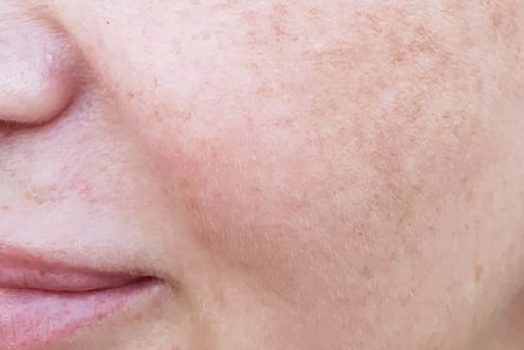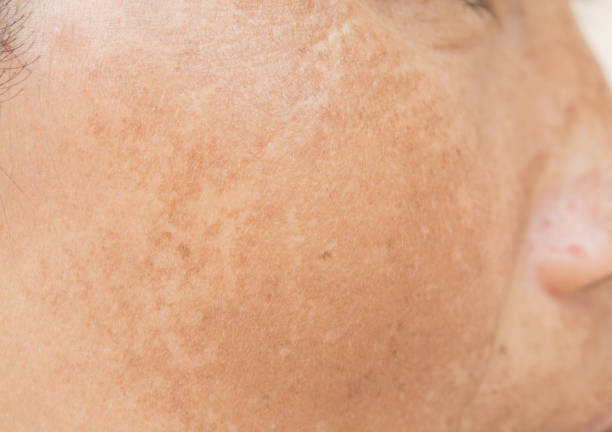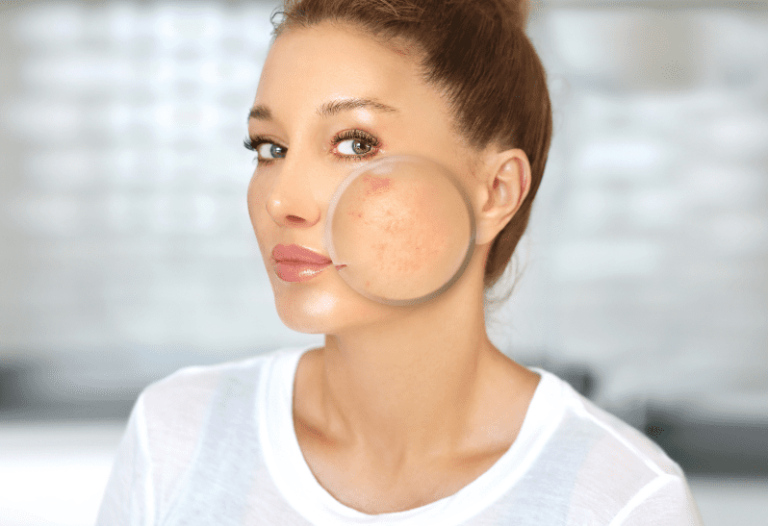Pigmentation

Melanin is the pigment that gives your skin its colour. Higher-than-normal localised levels of melanin in the skin can lead to disorders of pigmentation. These can range from superficial brown blemishes, including moles, freckles and sun spots, to more serious conditions. Melasma and hyperpigmentation are common reasons for patients to seek advice from a dermatologist.
There are many causes of increased pigmentation. To avoid delays in management, it is important to get an accurate diagnosis of why your skin is hyperpigmenting in order to both treat the existing hyperpigmentation and to prevent further pigmentation occurring. At Self London, we are able to diagnose and effectively treat causes of hyperpigmentation via our Consultant Dermatologist team.
Some patients can feel self-conscious about their pigmentation, especially if it affects exposed areas such as the face (which can understandably have a negative effect on your general happiness). Our medical dermatologists use a combination of prescription creams, chemical peels and, if appropriate, laser treatments to address these concerns.
Melasma
Melasma is a common, yet complex, condition causing a blotchy, non-uniform increase in pigmentation affecting predominantly the prominences of the face: forehead, cheeks, nose and chin. It mainly affects women and presents for the first time during the childbearing years. It is considered to be the result of the interplay between female hormones and visible light sunshine in those with a predisposition.
Some sufferers get it for the first time during pregnancy, while others notice it with contraception or during fertility treatment; for some, there is no apparent trigger. This increase in pigmentation can appear as brown, red and brown, and sometimes grey depending on where the increased pigment lies within the structure of the skin. Under the microscope, increased melanin can be seen in the epidermis or dermis (and sometime in both areas), as well as a change in the vasculature and structure of the skin.
Melasma can be very debilitating given the unpredictable changes in the appearance of the skin. Many people also find that they use full coverage foundation (base) to cover the blotchy pigmentation; this can lead to frustration from the inconvenience and feelings of self-consciousness whether make up is used or not. Although there is no cure for melasma, it can be well-managed. At Self London we take a holistic long-term view of the condition. Firstly, we treat any existing pigmentation and vasculature change, include via prescription creams, chemical peels and laser treatment. Secondly, we reduce relapse through prescription oral and topical treatments as well as top-up sessions of laser and/or chemical peels. Parallel to this will be recommendations for the optimal sunscreens that block the visible light which can induce melasma as well as tailored skincare regimes. Each patient is assessed by a consultant Dermatologist and offered a personalised approach based on their skin type and lifestyle.
For expert help with your pigmentation issues, contact the clinic to book a consultation.




